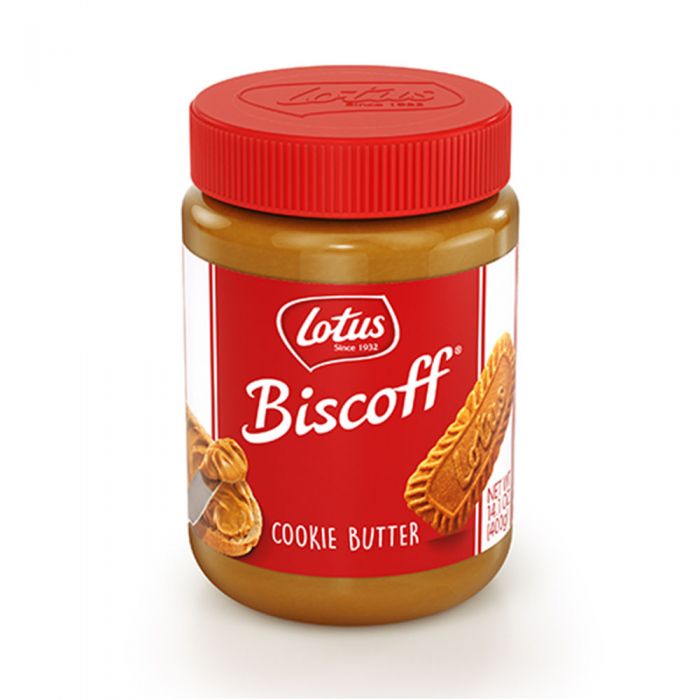If you’re one of the 1.2% of Americans suffering peanut allergies, no doubt you are across the many alternatives to peanut butter. While there are a huge variety of peanut butter alternatives in the market today, not all are equal to being called a peanut butter substitutes.
Peanut allergies are incredibly common amongst the population and represent a significant risk for those with them. According to the American Journal Of Managed Care:
“Peanut allergies affect an estimated 1.2% of the overall US population and about 2.5% of the pediatric population. They are the most common food allergy in children, affecting about 25% of those with a food allergy, and are a leading cause of allergy-related death in children.”
If these statistics cause you concern, you’re not alone. They not only highlight the dangers for those with peanut allergies, but the very real need to find appropriate peanut butter peanut butter alternatives. Particularly ones that are palatable for children, so that schools can be a safe and nut-free environment.
Is Peanut Free Enough?
According to the American Academy of Allergy, Asthma & Immunology, 30 percent of people with this allergy are also allergic to tree nuts, which rules out almond butter. Often there are significant challenges in maintaining a purely nut-free environment due to shared production lines. Cross-contamination is otherwise and worryingly, all too common. These trace amounts of peanuts or tree-nut allergens can still cause a significant allergic reaction or anaphylactic shock.
For allergy sufferers, choosing an alternative that is certified nut-free - such as our 5 Seed Butter, represents a safer option for those looking for a no nut butters.
Why Choose A Seed Butter over other Peanut Butter Alternatives, or Peanut Butter?
As mentioned above, a peanut allergy often goes hand-in-hand with tree-nut allergies. Meaning a nut-free alternative is ultimately the safest route. But there are also numerous health benefits attributable to seed butter. Making it a great option for everyone seeking an alternative to peanut and almond butters, not just those with a peanut allergy.
Not all seed butters are created equal, however. The majority are made using a single seed, discounting the benefits of combining underutilized, superfood seeds. We discovered that most people had heard of them, and had a desire to incorporate them into their diet, but did not know how to do so. Other than a handful in a smoothie or mixed with granola, it can be a challenge to harness their goodness effectively.
Taking this as the perfect opportunity to create a new product – 5 Seed Butter, we developed a traditional product like peanut butter and integrated the nutritious superfoods we learned about in South America. Then, to improve upon peanut butter one step further, we tackled another common issue – allergens.
To this end, we made an effort to make our butters accessible to all buyers by refusing to use any of the top 8 allergens. Something many peanut butter alternatives do not offer and something that is now a core focus for our business.
Comparing No-Nut Peanut Butter Alternatives
Nut Free Peanut Butter Alternatives come in many forms, usually the product of roasting and then grinding a variety of non-nut foodstuffs. These can include soybeans, legumes such as peas and chickpeas, and any number of seeds such as pumpkin, watermelon, flax, sunflower etc.
To better understand your nut-free options, we compared some of the leading nut-free brands.
Sneaky Chef No-Nut Butter
Pros: Smooth, creamy consistency very similar to peanut butter. Has a similar ‘peanutty’ taste that many people crave when switching out from peanut butter.
Cons: Made from peas, a member of the legume family to which peanuts also belong. As part of one of the most predominantly allergenic food groups, this product may still cause allergic reactions in some people. Nut-free, but not allergen-free.
SunButter Sunflower Seed Butter
Pros: Free of the top 8 allergens, sunflower butter is packed with nutrients including essential vitamins and minerals. Low in saturated fat.
Cons: Thinner consistency than peanut butter. Many find the taste unpalatable - tastes quite earthy and not nutty.
Wow Butter / Soy Butter
Pros: Thick, creamy and some say closest in consistency to traditional peanut butter. It is made by roasting soybeans and adding oil and salt.
Cons: Soy butter is often reported as tasting ‘stale’ by comparison with peanut butter and lacking in any real flavor. Also in the legume family, so is an allergen making it unsuitable for many.
Cookie Butter

Pros: cookie butter is a nice thin creamy spread that tastes great. Sweet and lightly spiced makes for a delicious treat. As the name implies it's flavor is kind of like cookies.
Cons: Not a lot of nutritional value, high in sugars. Not really a great alternative to peanut butter because it's a thinner spread and has more of a deep caramel flavor.
Coconut Butter
Pros: A thick paste that tastes great with jams and jelly's. Great coconut-y flavor for those who like coconut. Not high in carbs and sugars. which is ideal from a health perspective.
Cons: Not really a one to one for peanut butter, much different flavor profile and texture from what you get with nuts or seeds. It is higher in fat if that is something your are concerned with. Around 18 grams of fat per serving. Some people are allergic to coconut.
5 Seed Butter - The Ideal Alternative
Of course, we believe our peanut butter alternative to be the best option for peanut allergy sufferers. With a very close flavor and texture profile. There are reasons to support our beliefs however with the key residing in the dynamic blend of seeds we use. Our 5 Seed Butter is a nutritional powerhouse containing:
Sunflower seeds which are high in magnesium, vitamin E and protein, they can help lower blood pressure, blood sugar and cholesterol.
Chia Seeds that are high in omega-3 fatty acids and protein, fibre, magnesium, calcium, iron, copper, phosphorus, manganese and selenium.
Flax seeds, also high in omega-3 fatty acids and protein, can help lower blood sugar and insulin levels, aids in weight loss, improve skin health, and is rich in lignans which are shown to reduce the risk of certain cancers.
Pumpkin seeds, high in iron, calcium, B2, folate and beta-carotene, which the body metabolizes into vitamin A. They also contain omega-3 and omega-6 fatty acids.
Hemp seeds, high in protein, healthy fats, and fiber. It also contains zinc, iron and the B vitamins niacin, riboflavin, thiamine and folate.
5 Seed Butter also has a higher protein content and lower carb content than nut butter. It has a similar texture and consistency to nut butter, so is an ideal replacement in recipes and as a spread with your favorite jelly sandwich. It is also low in sugar, contains no soy, is dairy-free and vegan.
The overriding health benefits of using 5 Seed Butter instead of other tree nut-free alternatives cannot be overstated. It’s the optimal health-conscious choice. It is the perfect allergen-free peanut butter substitute.
Nut-Free, Without Compromise
At Beyond The Equator, we continue to develop new, delicious nut-free, peanut butter alternatives in a range of flavors. As well as other allergen free products. Meaning you can enjoy your favorite peanut butter based treats without compromising on, taste, texture your health or nutrition.
You can check tons of great out recipes with 5 seed butter on our blog.

